Cross Country Season on Flotrack 2013Oct 28, 2013 by Mitch Kastoff
My Year at Flotrack and Glengarry Glen Ross
My Year at Flotrack and Glengarry Glen Ross

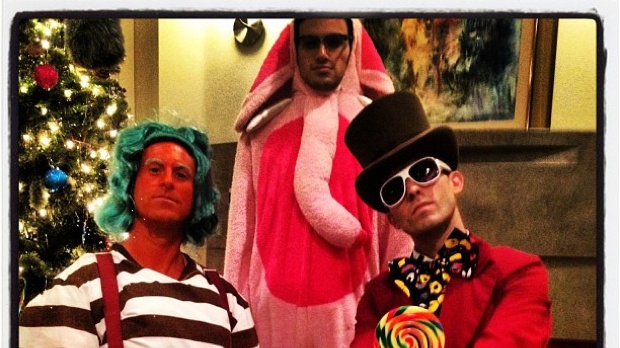
It’s fairly uncommon, but do you know about deja visite? It’s similar to deja vu in the sense that it’s one of those mysterious phenomena of the mind. Deja visite is when you have knowledge of a new place despite never having been there. Again, it’s weird.
When I traveled with Flotrack to Terre Haute, IN for the Pre-National Invitational, it was my first visit to the storied cross country course. Despite having never set foot in The Hoosier State, let alone on the XC course, I knew the course’s layout. When we hopped on the gator and rode the course to test out some equipment, there it was - that sense of deja vu. But it wasn’t deja vu, it was deja visite.
My only explanation for my uncanny understanding of the course was simple. I had watched the NCAA Cross Country Nationals so many times, that I knew which turns where tight, where the course looped, and where the gator had to hit the gas to ensure it wasn't caught by the lead pack.
I say all of this because this fall has had an equally familiar sense, albeit not spacial. I’ve been at Flotrack for a whole year and as each weekend comes and goes, there’s that sense that similar events have happened before. It’s deja vu.
Before we could leave the course, I saw one coach that I hadn’t seen since last fall in Louisville, KY. After some catching up, she asked me the question that inspired this post: “What have I learned in the past year?”
A lot.
“This Too Shall Pass” is probably one of the most important proverbs, ever
Whether you’re into Biblical allegories, Kurt Vonnegut quotes, or more modern interpretations, the theme remains the same - most things in life are temporary. Time doesn’t just heal the bad, but eventually sweeps away the good, too.
I don’t know how many papers I wrote in college or how many articles I wrote for Flotrack, but I know there were a lot of them. Some of them sucked while some of them were pretty good. With the bad ones, I moved on to the next project fairly quickly. With the good ones, like something that spent more time working on than I care to admit, I felt I could kick up my heels for a bit.
Then, whether I had written my magnum opus or my undoing, the next day rolled around and the previous project was gone. On to the next topical thing.
Most things are fleeting. Learn from the bad, remember the good, and keep moving forward.
Except for lifetime personal bests. That stuff stays with you forever. Obligatory.
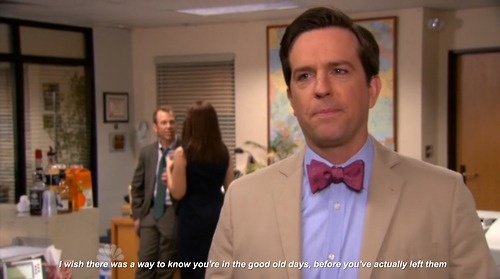
Love what you do, do what you love (but there’s an exception)
Here’s a solution to unhappiness in the post-college world: Love your job. That’d probably cheer up a lot of people in the world, except that the minority of the workforce that actually discovers the “solution” is such a minority that it’s not really a solution at all. It’s just a few people that got very lucky to do something they love for a living.
I can’t thank Flocasts and Flotrack enough for allowing me to do what I do on a daily basis. If I were spiritual, I this is where I would say I’m “blessed.”
There’s a small caveat when your job is your passion. That’s literally the problem - your job is your passion. I’ve always loved track and field and while this may be a surprising confession, it’s not my favorite sport. It’s not even my number two.
This opinion may be unpopular, but I find both cross country and track fairly boring. There may be an occasional race or two that’s an absolute beauty, but other than those timeless gems, watching running is a bore. Don’t get me wrong, I love running, but watching an event falls pretty far down down the list of “Things I’d rather do in my free time.”
When I was able to take some vacation time this summer, I backpacked through Europe for a few days. The same theme of questions were asked before and after I left: Are you going to enjoy the Diamond League as a casual fan?
Heck. No. The three Flotrack employees all did non-running related things with their free time. Alex Lohr went camping and got married (sorry ladies... and some guys), Ryan Fenton took some R&R, and I watched a bunch of soccer games.
Why did I choose to watch soccer over track? What can competitive running do to interest me? That’s a blog for neither here nor there.
“Sticks and stones may break my bones, but words can make someone else feel happy or sad" [which is pretty important too].
It took me a while to understand criticism. I don’t mean literally understand it, I mean accept it. Before every meeting at Flotrack, we say that "no idea is a bad idea... there are just ideas
My first taste of this came not too long ago at the University of Delaware (who unceremoniously cut their men's running programs). One time, one of my favorite professors told me that something I had submitted wasn’t just bad, it “made me feel like the judge in Billy Madison because I was worse off having read whatever this thing is that you put on my desk.” It’s like that sentence is etched into the dark recesses of my mind.
Since he wasn’t a total jerk, this professor let me resubmit my “thing.” I went home, having not punched him in the face, and worked simply out of spite to prove him wrong. By the time he had graded my second submission, things were different. I got an “A.” He Glengarry Glen Ross’d me into making something worthwhile.
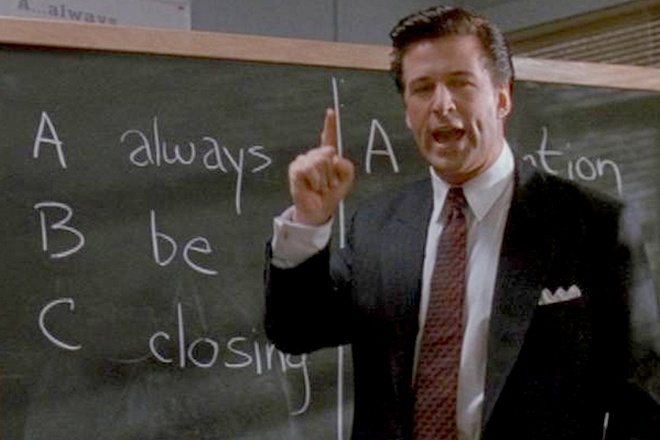
If I told you that "Coffee is for closers" is on a wall in our office, would you believe me?
You can walk away from this brutal critique thinking either: (a) screw this guy or (b) I want to prove him wrong.
In a nutshell, that’s how people accept criticism. Just as the New York Times tells everyone that “Losing Is Good for You,” sometimes being told that your work isn’t very good is healthy. It’s like receiving a low grade for an important research project you proudly submitted.
Though “Feedback is a Gift” is a company motto, it took me more than a whole year to truly embrace it. It actually took me until that conversation in Terre Haute to realize probably the most important thing I had learned in the past year:
Following your passions and trying to make things work will result in happiness. The key is in accepting that there are going to be soul-crushing failures.
Whether it’s school (bad grades), running (injuries), dating (do I need to explain this one?), happiness takes effort. As long as you’re creating something you think is worthwhile, you’ll be OK. It does matter what other people think (see: criticism), but if you’re the one making something and he or she is the one saying “this sucks" and really contributing nothing, you'll be OK.
Here's an easy example. If you ever go out to a karaoke bar, I'd be willing to wager that the guy belting "I Will Survive" is a lot happier than the guy making snarky comments. They'll both leave the place smiling, but one grin will be wider than the other.
Take risks. Even if you initially fail and all of your friends laugh at you for trying to be Gloria Gaynor, you'll be happier in the long run. Trust me.
A few very quick shout-outs. Again, thanks Flotrack - Ryan, Alex, Mark Floreani, and the entire crew that you never see, but help make this company run. I want also want to thank various companies: LetsRun for getting me started with the sport, Race Results Weekly for being awesome, apologies to Japan Running News, and in the interest of not offending any of our advertisers (though I would have picked them anyway), Oiselle for being the most innovative and interesting company in running. There are a lot of people I’ve met in this year-long journey, so I’ll just name a few - Chris Chavez, Jimmy Stevenson, my adidas Rogue roommates Carl Stones and Andrew Benford, Isaac Wood, all of the people that let me sleep on their floor, everyone who reads Flotrack, and everyone who made it this far in “My Year at Flotrack.”
Since you made it all the way to bottom, congratulations! Here’s the best video on the internet.
Related Content
 The Drake Relays Are This Weekend In Des Moines. Here's What To Know
The Drake Relays Are This Weekend In Des Moines. Here's What To KnowApr 24, 2024
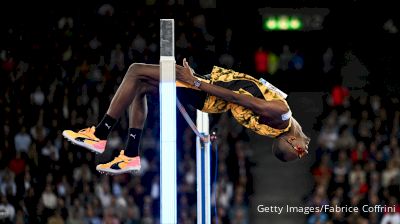 How To Watch The Diamond League Shanghai / Suzhou 2024
How To Watch The Diamond League Shanghai / Suzhou 2024Apr 24, 2024
 Diamond League Shanghai / Suzhou 2024 Schedule: What To Know
Diamond League Shanghai / Suzhou 2024 Schedule: What To KnowApr 24, 2024
 How To Watch The 2024 Payton Jordan Invitational
How To Watch The 2024 Payton Jordan InvitationalApr 24, 2024
 Sinclaire Johnson, Courtney Wayment To Star At Payton Jordan Invitational
Sinclaire Johnson, Courtney Wayment To Star At Payton Jordan InvitationalApr 24, 2024
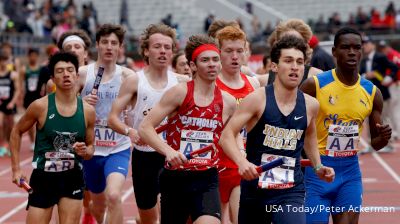 Penn Relays Qualifying Standards For 2024: Here's What To Know
Penn Relays Qualifying Standards For 2024: Here's What To KnowApr 24, 2024
 How to Watch: 2024 WVSSAC Outdoor Championships | Track and Field
How to Watch: 2024 WVSSAC Outdoor Championships | Track and FieldApr 24, 2024
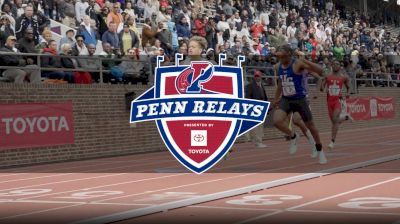 Penn Relays 2024 Preview Hype
Penn Relays 2024 Preview HypeApr 23, 2024
 Diamond League Xiamen Reactions, Plus Previewing Penn Relays | The FloTrack Podcast (Ep. 663)
Diamond League Xiamen Reactions, Plus Previewing Penn Relays | The FloTrack Podcast (Ep. 663)Apr 23, 2024